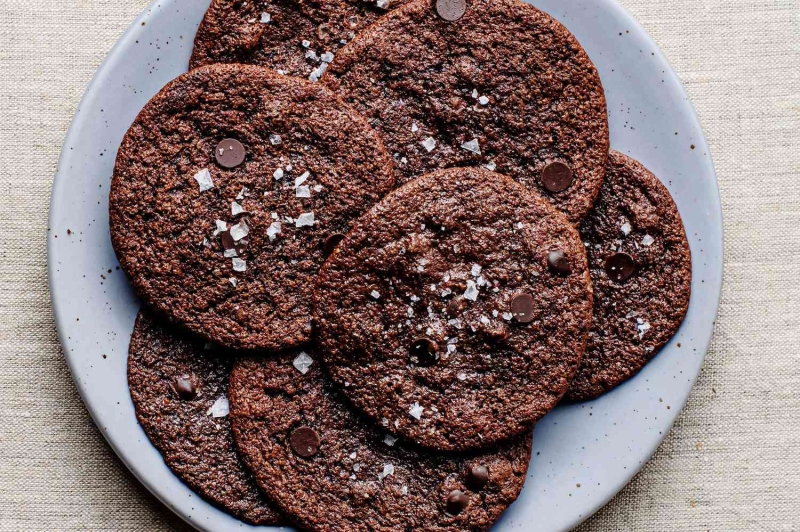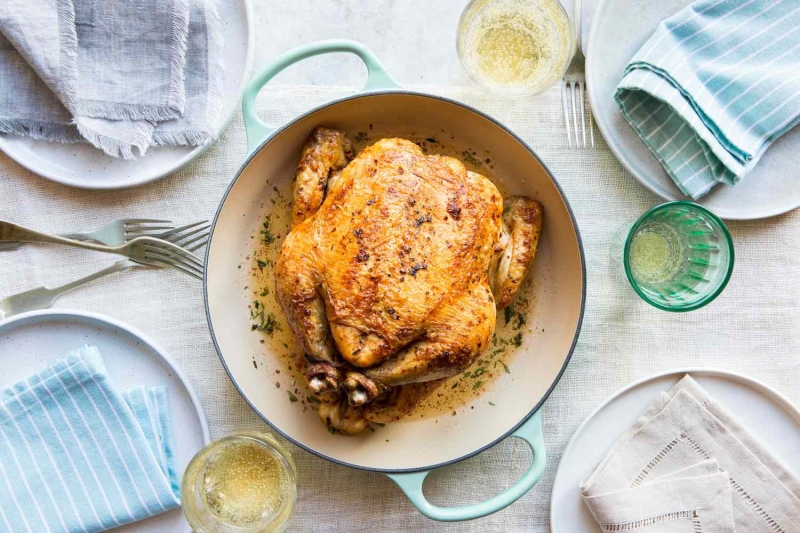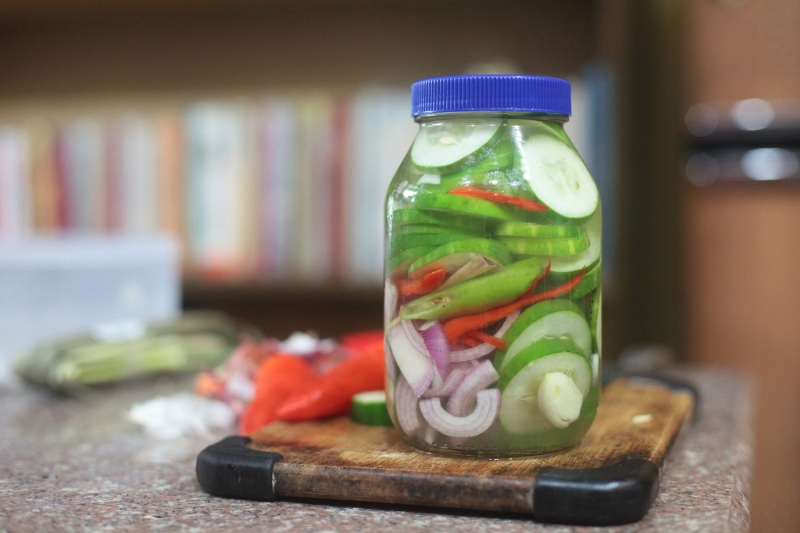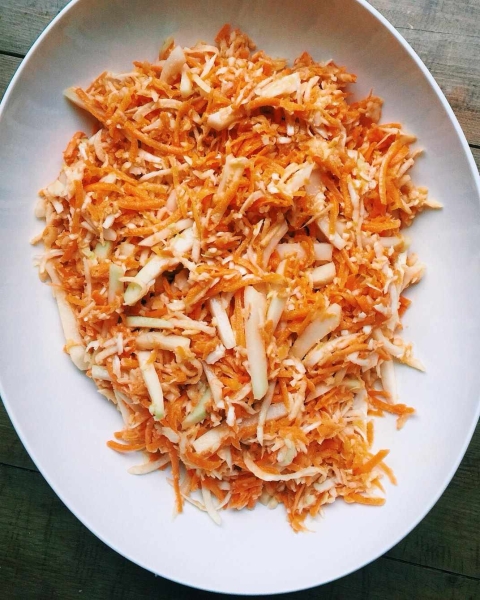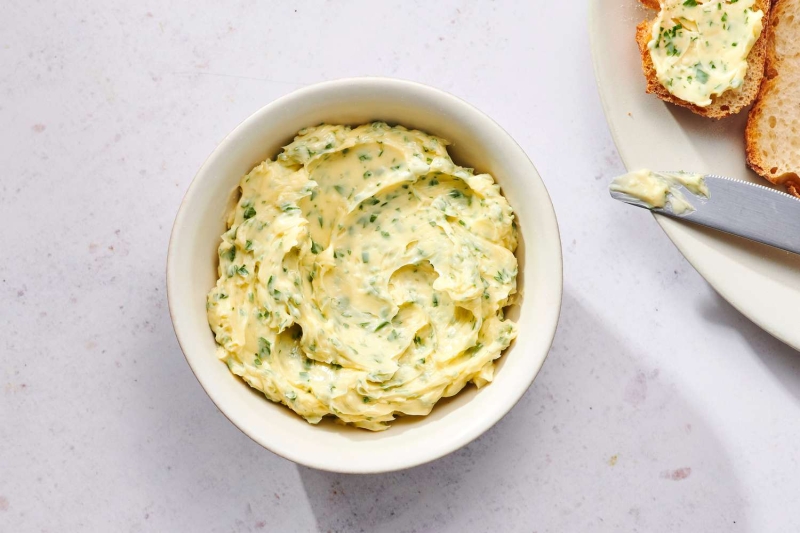
Prep: 5 mins
Cook: 0 mins
Total: 5 mins
Servings: 8 servings
Yield: 1/2 cup
Garlic and butter are a match made in heaven. This rich, alluring combo is the key ingredient in garlic bread, of course, but garlic butter also does wonders for seafood, steaks, vegetables, pasta, and more. Frankly, you could put garlic butter on an old shoe and it would taste great.
Although you can purchase pre-made garlic butter, it is easy to make at home, tastes better, and is more budget friendly. This simple recipe combines salted butter with minced garlic and some chopped parsley if you like for classic green-flecked garlic bread.
Read on for everything you need to know about making the very best garlic butter—it couldn't be easier. Plus, get ideas for easy variations, including roasted garlic butter and lemony garlic butter.
The Simple Ingredients for the Best Garlic Butter
- Salted butter: When an ingredient has title billing in a recipe you’ll want to use the very best, so choose a butter that you love the flavor of for this recipe. See our list of the best fancy butters for some options or use whatever you like to spread on toast. Salted butter works the best for making garlic butter but if you only have unsalted on hand, just add a few pinches of good quality salt to the softened butter. This recipe calls for 1/4 cup (which is 1/2 stick or 4 tablespoons) of butter, but it’s easily doubled—just double the garlic and any other seasonings too.
- Fresh garlic: While some recipes call for garlic powder, garlic salt, or jarred garlic to make garlic butter, we like the bright taste of fresh garlic. Choose firm, unblemished cloves and crush and mince the garlic well so its flavor will spread throughout the butter.
- Parsley or other seasonings (optional): While butter and garlic are the only essentials for garlic butter, we like adding a bit of color and snappy flavor with fresh parsley. See the variations below the recipe for more flavoring ideas.
The Best Ratio of Garlic to Butter for Garlic Butter
When making garlic bread, the ratio of garlic to butter in this recipe—two cloves of garlic to four tablespoons of butter—is ideal, but if you plan on using the compound butter to add flavor to meat, fish, or vegetables—or if you don't like things too garlicky—you may want to cut back to one clove of garlic to mellow out the intensity of the garlic. And of course if you are a garlic lover, you can certainly increase the amount of garlic.
How Long Does Homemade Garlic Butter Last?
Great news: Homemade garlic butter lasts a long time. Stored in the fridge, it'll keep for up to two weeks, while in the freezer it will last up to a year. Just be sure to wrap it well or store it in an airtight container so it doesn't pick up smells from your fridge or freezer.
How to Use Garlic Butter to Make Amazing Garlic Bread
- Preheat oven to 350 F.
- Split a large loaf of crusty Italian bread or French bread or a baguette in half lengthwise and place it on a baking sheet, cut-side up. (Tip: For easier cleanup, you can cover the baking sheet in foil or use a silicone baking mat.)
- Generously spread the garlic butter over both halves of the loaf and sprinkle with 1/2 teaspoon of salt. You can also add about 1 tablespoon chopped fresh parsley if you’d like.
- For cheesy garlic bread, sprinkle with a few tablespoons of grated Parmesan cheese.
- Bake until the butter has melted and the bread is lightly crisped around the edges, 8 to 10 minutes.
More Great Ways to Use Homemade Garlic Butter
You can technically use the garlic butter cold, but its flavors bloom when served at room temperature or warm. Use it to top beer-steamed shrimp, mashed potatoes, or roasted asparagus. Slather it on corn on the cob or warm dinner rolls.
For a steakhouse experience, shape your garlic butter into a log, refrigerate it, and cut off thick coins to top each piece of meat. It’s also delicious melted and drizzled over egg noodles with a grating of Parmesan.

“This recipe for garlic butter is such a simple one! Within just two steps you have a delicious condiment to top bread, fish, or steak. And, if you happen to have some day-old Italian or French bread, transform it into delicious garlic bread in just 15 minutes by slathering it with this melted mixture.” —Victoria Heydt
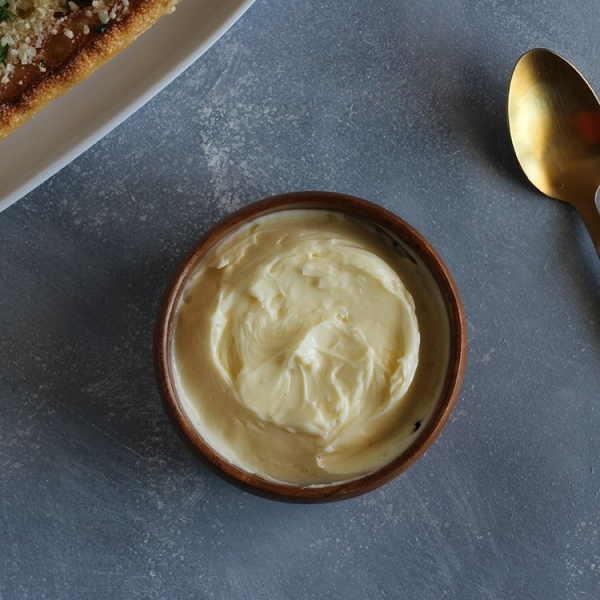
A Note From Our Recipe Tester Cook Mode (Keep screen awake)
Ingredients
-
1/4 cup (4 tablespoons/1/2 stick) salted butter, softened
-
2 cloves garlic, crushed and minced
-
1 tablespoon fresh parsley, chopped, optional
Steps to Make It
-
Gather the ingredients.
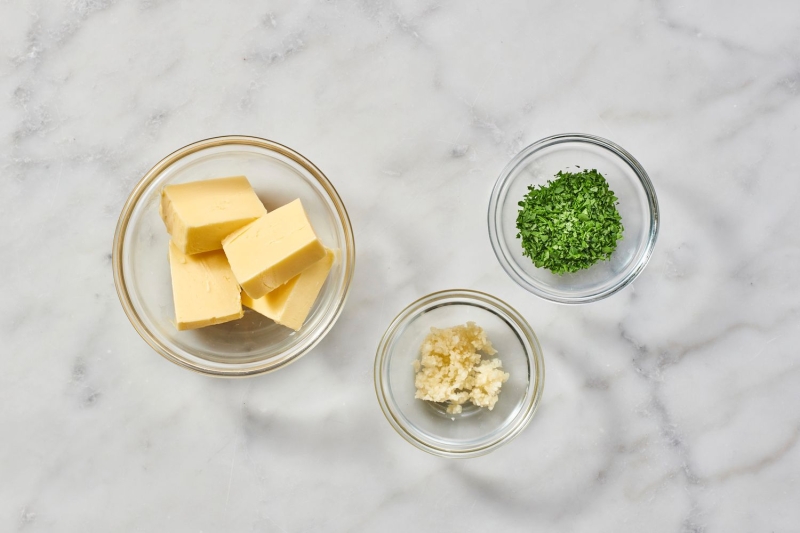
-
Using a whisk, beat the softened butter until smooth. Blend in the garlic until incorporated, about 1 minute.
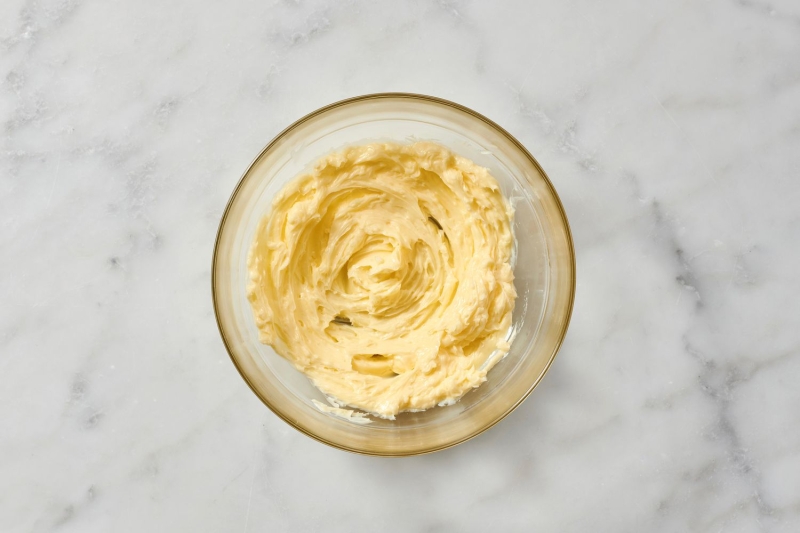
-
Mix in the parsley if using. Use immediately or wrap tightly and refrigerate.
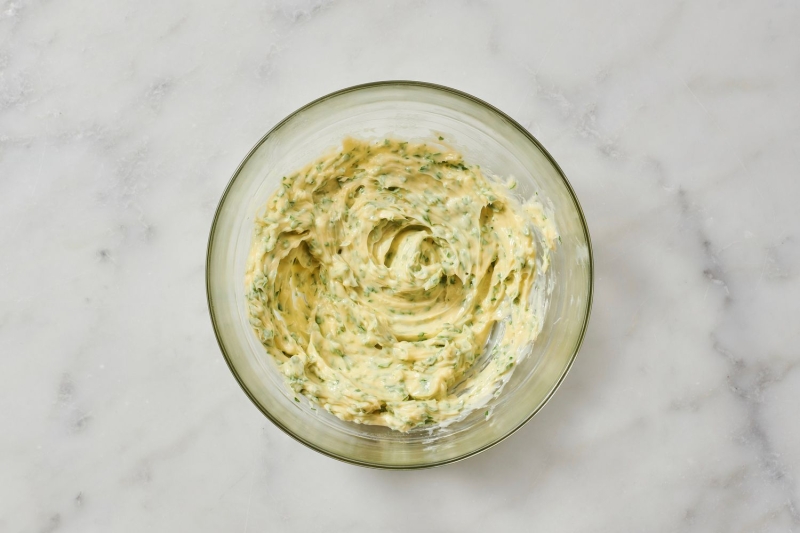
How to Store Garlic Butter
Transfer the butter to a ramekin and cover tightly, or form it into logs using parchment paper or plastic wrap, and refrigerate. The compound butter can be kept in the refrigerator, well wrapped, for up to two weeks. For longer storage, wrap tightly in plastic wrap and place in the freezer where it will last up to a year.
Recipe Variations
- Roasted Garlic Butter: Replace the raw garlic in the recipe with half a head of roasted garlic (4 to 6 cloves). Roasted garlic is sweet, so you can use more of it without the butter seeming overly garlicky.
- Garlic and Parsley Butter: Stir 1/4 to 1/2 cup of chopped fresh parsley into the garlic butter. Add about 1/4 teaspoon of salt and 1/4 teaspoon of freshly ground black pepper.
- Lemon, Garlic, and Parsley Butter: Mix the garlic butter with 1/3 cup chopped fresh parsley, 2 tablespoons fresh lemon juice, about 1/4 teaspoon salt, and 1/4 teaspoon of crushed black pepper. If desired, add 1 to 2 tablespoons of minced shallot.
- Extra-Virgin Olive Oil/Butter: Instead of 4 tablespoons of butter, use 2 tablespoons of butter and 2 tablespoons of extra-virgin olive oil.
| Nutrition Facts | |
|---|---|
| Servings: 8 | |
| Amount per serving | |
| Calories | 52 |
| % Daily Value* | |
| Total Fat 6g | 7% |
| Saturated Fat 4g | 18% |
| Cholesterol 15mg | 5% |
| Sodium 46mg | 2% |
| Total Carbohydrate 0g | 0% |
| Dietary Fiber 0g | 0% |
| Total Sugars 0g | |
| Protein 0g | |
| Vitamin C 0mg | 1% |
| Calcium 3mg | 0% |
| Iron 0mg | 0% |
| Potassium 5mg | 0% |
| *The % Daily Value (DV) tells you how much a nutrient in a food serving contributes to a daily diet. 2,000 calories a day is used for general nutrition advice. | |
